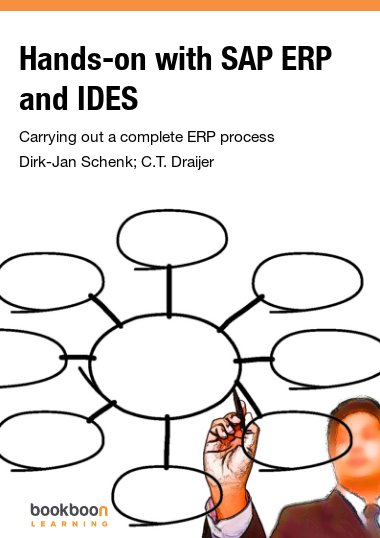This course is an introduction to ERP supported by SAP ERP with the IDES database.
The method is developed for business schools and universities. Knowledge of the subjects related to ERP is assumed.
The method does not focus on the modules of SAP ERP, but on the main characteristic of SAP ERP: the integration of business processes.
The course is divided into three parts:
- Enterprise Resource Planning and SAP
- Carrying out a complete ERP process
- Special applications
In part two, master data are created and a complete sales order-driven process is carried out. It offers hands-on experiences and knowledge about material requirements planning and all related business cycle steps, typical for SAP ERP.
About the authors
Casper Draijer (1959) is a lecturer for more than 30 years in financial accounting, management accounting and management information systems. He has more than 20 years of experience of teaching SAP ERP Basics, FICO and SAP SCM. His background is business economics. At this moment he teaches Business Process Simulation and Controlling and Accounting with SAP ERP and supply chain management with SAP SCM at the Amsterdam University of Applied Sciences. On behalf of the Amsterdam University of Applied Sciences he is an active member of the SAP Global University Alliance.
Dirk-Jan Schenk (1957) has more than 20 years of experience teaching SAP ERP, CRM and BI and is a lecturer for more than 35 years. He has a background in mathematics and business informatics. He is chairman of the special interest group Education from the Dutch SAP User group (VNSG) and write articles for the VNSG Magazine. At this moment he teaches Business Process Simulation with SAP ERP at the Amsterdam University of Applied Sciences and does the functional support for a lot of schools in the Netherlands.

